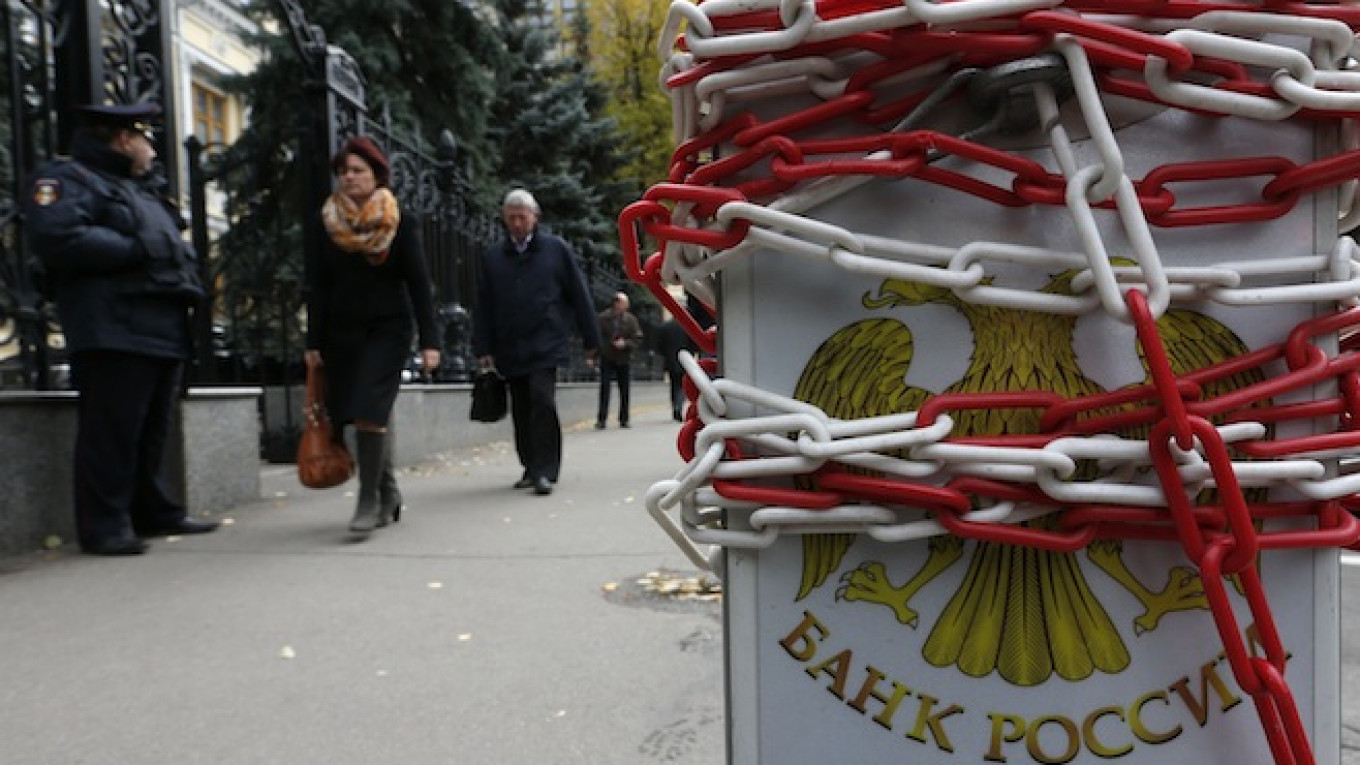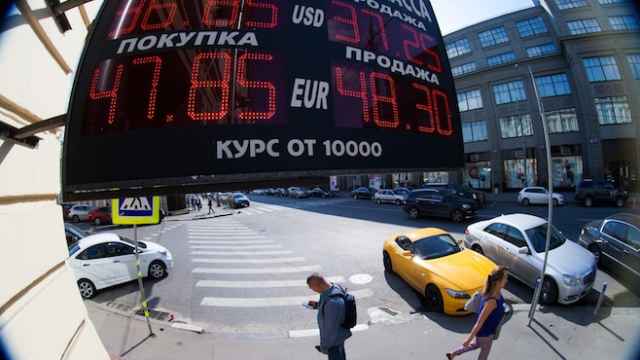Continuing this year's precipitous descent, Russia's ruble weakened to below 44.4 against the dollar-euro currency basket on Friday, crossing the threshold past which the Central Bank has committed to buying unlimited amounts of rubles to defend it.
Having plummeted 6 percent against the basket in September, the ruble first entered the intervention zone on Oct. 1, forcing the Central Bank to spend some $4 million to halt its decline.
The dollar-euro basket is a weighted combination of the world's two key currencies used to gauge the ruble's value and determine the timing of Central Bank interventions.
The ruble has weakened about 15 percent against the basket so far this year, and more than 20 percent against the dollar, as an economic slowdown, Western sanctions over Ukraine and, most recently, sharply falling oil prices have hollowed out the currency.
At 1:15 p.m., the ruble was trading at 44.44 to the basket.
The Central Bank operates a managed float system designed to shelter the ruble from undue volatility. The currency is permitted to move freely within a set range of exchange rates, but when the ruble butts up against the outer limit of this trading corridor, the regulator begins buying up rubles with hard currency to support it. The corridor is expanded by 5 kopecks for every $350 million spent.
The Central Bank spent over $72 billion to prop up the ruble in the first three months of this year. The Oct. 1 intervention was the first since May.
A Message from The Moscow Times:
Dear readers,
We are facing unprecedented challenges. Russia's Prosecutor General's Office has designated The Moscow Times as an "undesirable" organization, criminalizing our work and putting our staff at risk of prosecution. This follows our earlier unjust labeling as a "foreign agent."
These actions are direct attempts to silence independent journalism in Russia. The authorities claim our work "discredits the decisions of the Russian leadership." We see things differently: we strive to provide accurate, unbiased reporting on Russia.
We, the journalists of The Moscow Times, refuse to be silenced. But to continue our work, we need your help.
Your support, no matter how small, makes a world of difference. If you can, please support us monthly starting from just $2. It's quick to set up, and every contribution makes a significant impact.
By supporting The Moscow Times, you're defending open, independent journalism in the face of repression. Thank you for standing with us.
Remind me later.






